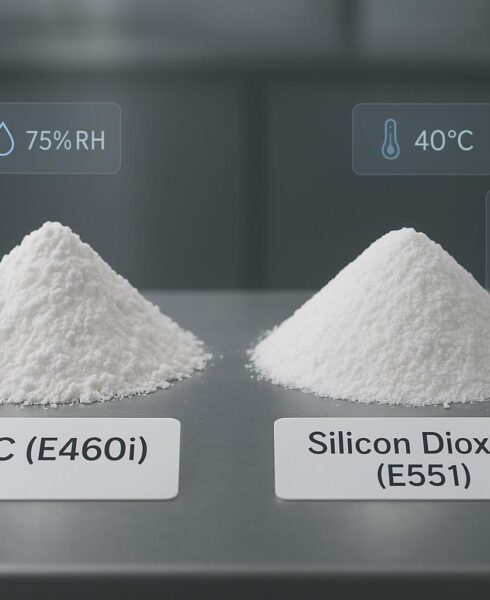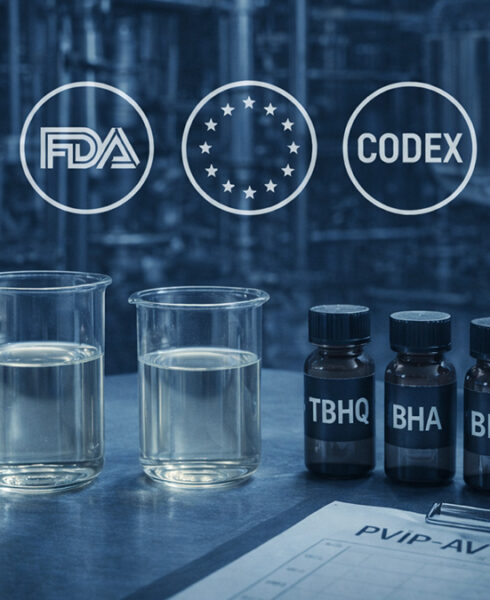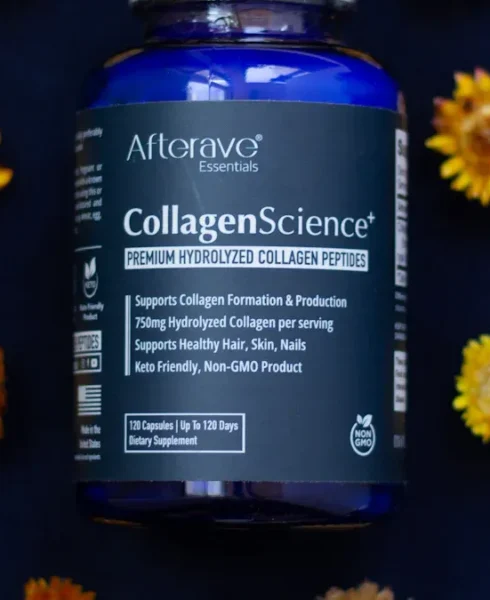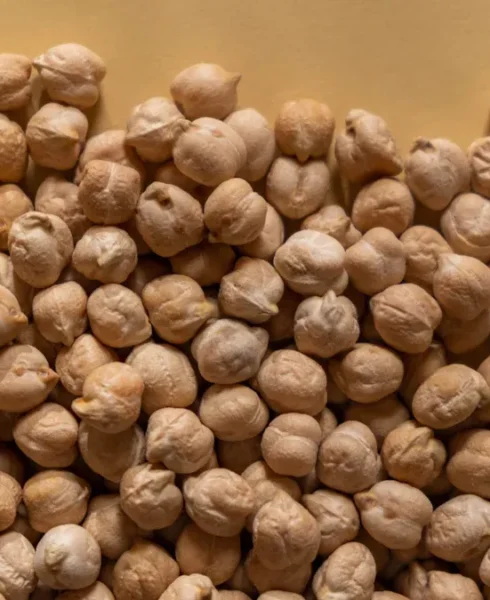Are you trying to find the best sweetener for your diet in 2025? There are many options to choose from! People everywhere now use more high-intensity sweeteners like sucralose and aspartame. They also use natural sweeteners like stevia and monk fruit. Here is a quick look at what is popular now:
| Sweetener Type | Popular Choices | Why People Pick Them |
|---|---|---|
| High-Intensity | Sucralose, Aspartame | No calories, very sweet, easy to buy |
| Low-Intensity (Natural) | Stevia, Monk Fruit | Made from plants, clean label, popular |
| Emerging | Allulose | New, tastes like sugar, low in calories |
You should pick a sweetener that matches your taste and health. The top 10 sweeteners can help you reach your goals. But each one has good and bad points. Think about your health needs, and ask your doctor or a dietitian if you are not sure which is best.
Key Takeaways
- Pick sweeteners that match your taste and health needs. Make sure they fit your diet for the best results. Natural sweeteners like stevia and monk fruit have almost no calories. They also do not make your blood sugar go up. Artificial sweeteners have no calories but can have health risks. Do not use them too much; be careful with them. Sugar alcohols like erythritol and xylitol have few calories. They can upset your stomach if you eat a lot. Try different sweeteners to see what you like. Watch how your body feels after using them. Always talk to a doctor if you worry about your health.
Sweetener Types

Natural
If you want something close to nature, try natural sweeteners. These come from plants, fruits, or roots. Some examples are stevia, monk fruit, coconut sugar, dates, and licorice root. Stevia and monk fruit are both from plants. They are favorites because they taste sweet but do not add many calories. The FDA and other health groups say these are safe, especially when very pure. Many people pick natural sweeteners because they have a low glycemic index. This means they do not make your blood sugar go up fast. You can use them in drinks, baking, or on oatmeal.
Tip: If you want fewer calories but still want sweet, try natural sweeteners like stevia and monk fruit.
Artificial
Artificial sweeteners are made in labs. They taste very sweet, much sweeter than sugar. You can find aspartame, sucralose, and acesulfame K in diet sodas, sugar-free gum, and snacks. The FDA says these are safe for foods and drinks. They check them carefully. Aspartame is very popular in 2025. It is in many drinks and easy foods. Many people use artificial sweeteners to eat fewer calories or help with diabetes.
- Common artificial sweeteners:
- Aspartame
- Sucralose
- Acesulfame K
- Saccharin
- Neotame
Sugar Alcohols
Sugar alcohols may sound fancy, but they come from fruits and veggies. You might see xylitol, erythritol, and sorbitol on food labels. These have fewer calories than sugar. They do not cause tooth decay. People like them in “keto” and “diabetes-friendly” foods. They do not raise blood sugar much. But eating too much can upset your stomach or cause gas. Some studies say lots of xylitol and erythritol might raise heart risk. So, it is smart to use them only a little.
| Sugar Alcohol | Calories (per gram) | Tooth Decay Risk | Blood Sugar Impact |
|---|---|---|---|
| Xylitol | 2.4 | No | Low |
| Erythritol | 0.2 | No | Very Low |
| Sorbitol | 2.6 | No | Low |
Novel
Novel sweeteners are new and different. Scientists make them with special steps like fermentation or bioconversion. Allulose and tagatose are two kinds. They taste a lot like sugar but have almost no calories. They also have a low glycemic impact. Companies keep making these sweeteners better and cheaper. You can find novel sweeteners in soft drinks and protein bars. By 2025, stevia extracts and allulose are very popular. More people pick them for their clean label and natural feel.
Note: Novel sweeteners mix the best parts of natural and artificial ones. They taste good, have low calories, and are good for people who care about health.
Why Sweetener Choice Matters
Health
The sweetener you pick can change your health a lot. Some, like aspartame and sucralose, might make heart disease or diabetes more likely. They can also change the bacteria in your gut. Drinking too much diet soda can hurt your heart and blood sugar. Scientists say switching sugar for artificial sweeteners does not always help your heart or stop diabetes. Using lots of these sweeteners could even be bad over time. If you use sweeteners, do not use too much. Notice how your body feels.
| Health Outcome | What Studies Show |
|---|---|
| Heart Disease | Some artificial sweeteners linked to higher risk of heart and blood vessel problems |
| Diabetes | Diet sodas and artificial sweeteners may raise risk for type 2 diabetes |
| Gut Health | Some sweeteners can change your gut bacteria, which may affect your digestion and immune system |
| Weight | No clear proof that non-sugar sweeteners help with weight loss or prevent obesity |
Tip: If you are pregnant or have health problems, ask your doctor before trying new sweeteners.
Diets
You may follow a diet like keto, vegan, or diabetic. Your diet helps you pick the right sweetener. For keto, you need sweeteners that do not raise blood sugar. Stevia, monk fruit, erythritol, or sucralose are good for this. These help you stay in ketosis. If you have diabetes, you want sweeteners that do not spike blood sugar. Natural ones like stevia and monk fruit are good choices. Sugar alcohols like erythritol and xylitol are safe for most people with diabetes. If you eat vegan, check the label. Some sweeteners, like honey, are not vegan.
Taste
Taste is important when you choose a sweetener. Some taste almost like sugar. Others taste bitter or metallic. Nutritive sweeteners, like table sugar and honey, taste sweet right away and then fade. Non-nutritive sweeteners, like stevia or sucralose, taste sweet for longer but can leave a strange aftertaste. People like different things. You might like monk fruit, but your friend might not. Age and habits can also change what you enjoy.
| Sweetener Type | Sweetness Onset | Aftertaste | Similar to Sugar? |
|---|---|---|---|
| Table Sugar, Honey | Fast | None | Yes |
| Stevia, Sucralose | Fast | Bitter/Metallic | Not always |
| Erythritol, Xylitol | Fast | Cool sensation | Close |
Try a few sweeteners to find the one you like best! 😊
Top 10 Sweeteners
When you want to make food or drinks sweet, there are many choices. Here are the top 10 sweeteners people use in 2025. This list helps you compare them and pick what works for you.
Sucrose (Table Sugar)
Sucrose is the sweetener most people know. You see it in sugar bowls, sodas, cookies, and sauces. Most sucrose comes from sugar cane or sugar beets.
| Aspect | Details |
|---|---|
| Source | Sugar cane, sugar beets |
| Common Uses | Baked goods, drinks, sauces, processed foods |
| Taste | Clean, sweet, no aftertaste |
| Health Concerns | Eating too much can cause obesity, type 2 diabetes, fatty liver, and heart disease. Most Americans eat more than they should. Experts say to keep added sugars under 10% of your daily calories. |
Tip: Eat more whole foods and save sucrose for treats. Fruits and veggies have natural sugars that are better for you.
Stevia
Stevia comes from the leaves of the Stevia rebaudiana plant. It is much sweeter than sugar, so you only need a little bit. You can buy stevia in packets, drops, or mixed with other sweeteners.
- Source: Stevia plant leaves
- Health Benefits: Stevia does not raise blood sugar. It is safe for people with diabetes. Studies show it may help you eat less and avoid obesity. The FDA and health groups say high-purity stevia is safe.
- Common Uses: Coffee, tea, yogurt, smoothies, and baked goods
- Taste: Very sweet, sometimes with a slight bitter or licorice aftertaste
- Concerns: Some people notice a strange aftertaste. Whole leaf stevia is less studied, but purified extracts are safe.
Note: Stevia is in many products around the world. You can use it every day if you do not use too much.
Monk Fruit
Monk fruit sweetener comes from a small green fruit grown in Asia. The sweet part is called mogroside. It is about 250 times sweeter than sugar and has no calories.
- Source: Monk fruit (Luo Han Guo)
- Health Benefits: Monk fruit does not raise blood sugar or insulin. It is safe for people with diabetes and low-carb diets. Animal studies say it may help control blood sugar and has antioxidant effects.
- Common Uses: Drinks, baked goods, sauces, and protein bars
- Taste: Very sweet, sometimes with a mild aftertaste that some people find bitter or metallic
- Concerns: Monk fruit is safe for most people. Human studies are still limited, so more research is needed.
If you want a zero-calorie sweetener for many diets, monk fruit is a great choice from the top 10 sweeteners.
Erythritol
Erythritol is a sugar alcohol found in some fruits and made by fermenting corn or wheat starch. It tastes almost like sugar but has almost no calories.
| Aspect | Details |
|---|---|
| Source | Fermented corn or wheat starch, some fruits |
| Common Uses | Baked goods, candies, gum, yogurt, low-calorie drinks |
| Taste | Sweet, with a cool sensation, no aftertaste |
| Health Benefits | Does not raise blood sugar or insulin. Good for people with diabetes and keto diets. Does not cause tooth decay. |
| Side Effects | High amounts may cause nausea, bloating, or diarrhea, but it is better tolerated than other sugar alcohols. |
Erythritol is popular in the top 10 sweeteners because it is gentle on your stomach and tastes close to sugar.
Allulose
Allulose is a rare sugar found in small amounts in wheat, figs, and raisins. Food makers now make more of it for use as a sweetener.
- Source: Wheat, figs, raisins (made in labs for food use)
- Health Benefits: Almost no calories. Does not raise blood sugar or insulin. May help with weight loss and lower belly fat. Some studies show it could help your gut and lower inflammation.
- Common Uses: Protein bars, baked goods, ice cream, low-calorie drinks
- Taste: Very close to sugar, no aftertaste
- Concerns: High doses can cause gas, bloating, or diarrhea. Rarely, people allergic to corn or fructose may react.
Allulose is one of the newest top 10 sweeteners. It is safe for most people and works well in many recipes.
Sucralose
Sucralose is an artificial sweetener made from sugar. It is hundreds of times sweeter than sugar, so you only need a tiny bit.
| Aspect | Details |
|---|---|
| Source | Chemically modified sugar |
| Common Uses | Diet sodas, sugar-free gum, baked goods, protein shakes |
| Taste | Very sweet, no aftertaste when used cold, but can taste bitter when heated |
| Health Concerns | Some studies link sucralose to insulin resistance, weight gain, and possible cancer risk. Heating sucralose can create toxic compounds. It may also build up in your body and pass into breast milk. |
Note: Sucralose is still approved by the FDA, but new research says you should be careful. It is still one of the most used in the top 10 sweeteners.
Aspartame
Aspartame is another artificial sweetener. You find it in many diet drinks and sugar-free foods. It is about 200 times sweeter than sugar.
- Source: Made from two amino acids (aspartic acid and phenylalanine)
- Health Benefits: Low in calories. Does not raise blood sugar. Approved by the FDA and many health groups.
- Common Uses: Diet sodas, sugar-free gum, yogurt, and desserts
- Taste: Sweet, similar to sugar, but can have a slight aftertaste
- Concerns: People with PKU (phenylketonuria) must avoid aspartame. Some studies link it to headaches, mood changes, and possible cancer risk, but most experts say it is safe in small amounts.
If you use aspartame, stay within the daily limits. It is a common choice in the top 10 sweeteners, but not for everyone.
Xylitol
Xylitol is a sugar alcohol found in some fruits and vegetables. It is almost as sweet as sugar but has fewer calories.
- Source: Corn cobs, birch trees, some fruits and veggies
- Health Benefits: Xylitol helps stop bacteria from sticking to your teeth. It also raises the pH in your mouth, which protects enamel. Dentists often recommend xylitol gum or mints.
- Common Uses: Chewing gum, toothpaste, candies, baked goods
- Taste: Sweet, very close to sugar, no aftertaste
- Concerns: Too much xylitol can upset your stomach. It is safe for people, but very toxic to dogs.
Xylitol is special in the top 10 sweeteners for helping your teeth. Just keep it away from pets!
Agave Syrup
Agave syrup comes from the agave plant, the same one used to make tequila. It is sweeter than sugar and pours easily.
- Source: Agave plant
- Health Benefits: Agave syrup has a low glycemic index, so it does not spike blood sugar as much as table sugar. This makes it seem like a good choice for people watching their blood sugar.
- Common Uses: Coffee, tea, pancakes, salad dressings, baked goods
- Taste: Mild, sweet, with a hint of caramel
- Concerns: Agave syrup is very high in fructose (about 80-85%). Too much fructose can lead to belly fat, fatty liver, and higher cholesterol. Even though it is low-GI, experts say to use it sparingly.
Agave syrup is on the list of top 10 sweeteners, but it is not always the healthiest option.
Honey
Honey is one of the oldest sweeteners. Bees make it from flower nectar. People love honey for its flavor and natural image.
| Category | Benefits | Potential Drawbacks |
|---|---|---|
| Nutritional Content | Has small amounts of vitamins, minerals, enzymes, and antioxidants. Dark honey has more antioxidants. | Nutrient levels are low and vary by type. |
| Sweetness | Sweeter than sugar, so you can use less. | – |
| Medicinal Uses | May help with coughs, allergies, and wound healing. | More research needed to confirm these effects. |
| Caloric Content | – | Higher in calories than sugar (about 64 per tablespoon). |
| Safety | – | Not safe for babies under 1 year (risk of botulism). |
| Health Risks | – | Too much can raise the risk of obesity, heart disease, and diabetes. |
Honey is a favorite in the top 10 sweeteners for its taste and natural feel. Use it in moderation for the best health.
Now you have a simple guide to the top 10 sweeteners. Each one has good and bad points. Try a few and see which fits your taste, health goals, and lifestyle best!
Sweetener Comparison

Diet Compatibility
Picking a sweetener depends on your diet. Some sweeteners are good for keto, vegan, or diabetic diets. Others do not work as well. Here is a quick chart to help you choose:
| Sweetener | Keto Friendly | Diabetic Friendly | Vegan Friendly | Notes |
|---|---|---|---|---|
| Stevia | ✅ | ✅ | ✅ | Plant-based, very sweet, low carb |
| Monk Fruit | ✅ | ✅ | ✅ | Plant-based, zero calories |
| Erythritol | ✅ | ✅ | ✅ | Sugar alcohol, no blood sugar spike |
| Xylitol | ⚠️ | ✅ | ✅ | Sugar alcohol, may cause stomach upset |
| Maltitol | ⚠️ | ✅ | ✅ | Sugar alcohol, can cause gas |
| Yacon Syrup | ❌ | ❌ | ✅ | Not for keto or diabetes |
| Honey | ❌ | ❌ | ❌ | Not vegan, high in carbs |
| Agave Syrup | ❌ | ❌ | ✅ | High in fructose, not keto |
Tip: Stevia, monk fruit, and erythritol are great for most diets. Always read the label to check for hidden sugars.
Health Impact
You may wonder how sweeteners affect your health. Stevia and monk fruit have almost no calories. They do not raise your blood sugar. Table sugar and honey have more calories and a higher glycemic index. Artificial sweeteners like sucralose and aspartame have zero calories. Studies do not always agree about their effects. Some research says they help with weight and blood sugar. Other studies link them to heart disease and diabetes, especially if you drink lots of diet soda. We still do not know all the long-term effects.
| Sweetener | Glycemic Index (GI) | Calories (per serving) | Main Drawbacks |
|---|---|---|---|
| Sucrose (Sugar) | ~65 | Moderate | Raises blood sugar, weight gain |
| Stevia | 0 | 0 | Bitter aftertaste for some |
| Monk Fruit | 0 | 0 | Rare, mild aftertaste |
| Erythritol | 7-13 | 0 | Can cause stomach upset |
| Xylitol | 7-13 | 2.4/g | Digestive issues, toxic to dogs |
| Sucralose | 0 | 0 | Possible gut changes, unclear long-term effects |
| Aspartame | 0 | 0 | Not for people with PKU |
| Agave Syrup | ~17 | High | High in fructose, not for keto |
| Honey | ~58 | High | High in sugar, not vegan |
| Allulose | ~0 | Very low | May cause gas in large amounts |
Try different sweeteners and see how your body reacts. If you have health problems, ask your doctor before you switch. 😊
Choosing the Right Sweetener
Health Goals
Pick a sweetener that fits your health goals. If you want to lose weight or control blood sugar, look at more than just calories. Some research says aspartame and sucralose might raise your risk for type 2 diabetes and heart problems, but the proof is not always strong. Your weight, blood sugar, and gut bacteria can change how sweeteners work for you.
- Think about these things when you choose:
- Do you want natural or artificial? Caloric or non-caloric?
- Artificial sweeteners may help with weight loss for a short time, but we do not know the long-term effects.
- Erythritol and xylitol can raise blood sugar a little and upset your stomach.
- The FDA and other groups say most sweeteners are safe, but your own reaction is most important.
- Always see how your body feels and talk to your doctor if you have health worries.
Tip: No sweetener works for everyone. Your health, goals, and how your body reacts should help you decide.
Preferences
Your taste matters a lot when picking a sweetener. Some people like very sweet things, while others want less sweetness. Younger people often like sweeter tastes and natural choices like stevia. Older adults may want less sweet and sometimes pick artificial sweeteners for health reasons. Where you live can also affect what you like. For example, people in India often like very sweet foods, but in the US and UK, some like strong sweetness and others like mild.
| Consumer Group | Sweetener Preference | Sweetness Level |
|---|---|---|
| Younger consumers | Sugar, stevia | Higher |
| Older consumers | Artificial, less sweet | Lower |
| General trend | Natural sweeteners rising | Moderate |
Familiar foods matter too. You may like a sweetener more if you already know the taste. Many people now want natural, plant-based sweeteners for a cleaner label and better flavor.
Side Effects
Always watch for side effects. Some sweeteners can cause problems if you eat too much. For example, aspartame can give some people headaches, especially if they get migraines. Some people feel mood changes after using aspartame. Sugar alcohols like sorbitol and mannitol can cause gas or diarrhea, especially if you eat a lot.
| Sweetener | Common Side Effects | Notes |
|---|---|---|
| Aspartame | Headaches, mood changes | Migraine and mood disorder risk |
| Sugar alcohols | Gas, diarrhea | More likely at high intake |
If you notice side effects, try a different sweetener or use less. Always listen to your body and talk to a doctor if you have questions.
You have lots of choices when it comes to sweeteners. Stevia, monk fruit, and erythritol fit most diets, while honey and agave work best for those who want natural options. Health groups say you should not rely on non-sugar sweeteners for weight control. Try different sweeteners from the top 10 sweeteners list, but watch how your body reacts. If you have questions or health concerns, talk to your doctor. Making smart, informed choices helps you enjoy sweetness and stay healthy. 😊
FAQ
What is the healthiest sweetener to use every day?
You might like stevia or monk fruit. Both come from plants and have almost no calories. They do not raise your blood sugar. You can use them in drinks or baking. Always check how your body feels.
Can sweeteners help me lose weight?
Sweeteners can help you cut calories. You may lose weight if you use them instead of sugar. Some people eat more because foods taste sweet. Watch your portions and listen to your hunger cues.
Are artificial sweeteners safe for kids?
Most artificial sweeteners are safe in small amounts. The FDA checks them. Kids should not eat too much. You can talk to your doctor if you have concerns.
Which sweeteners are best for baking?
For baking, try these:
- Erythritol
- Stevia blends
- Monk fruit blends
They hold up well to heat and taste close to sugar. Always check the package for tips.







